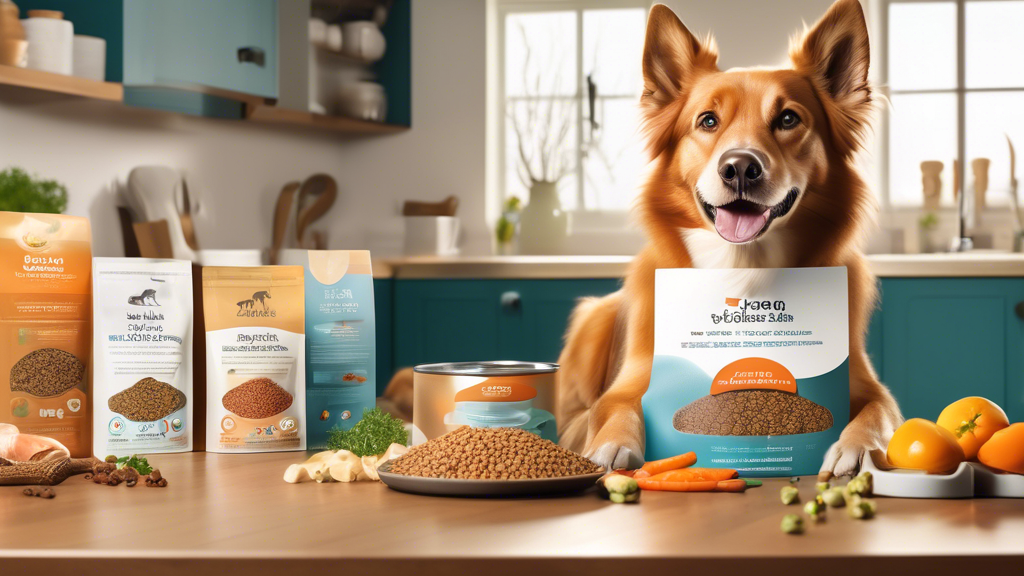Introduction to Canine Skin Allergies and Diet
Dog skin allergies, also known as allergic dermatitis, are a common ailment that can cause itching, redness, and discomfort for your canine companion. These allergies can be triggered by a variety of factors, including environmental allergens, flea bites, and food. In many cases, a change in diet can significantly help manage these symptoms by removing common allergens and irritants from your dog’s food. This article explores some of the best dog food options available for dogs suffering from skin allergies.
Understanding the Role of Diet in Canine Allergies
The role of diet in managing canine allergies cannot be overstated. Allergies in dogs can be exacerbated by certain ingredients that are commonly found in dog foods such as beef, chicken, eggs, corn, wheat, soy, and dairy products. Hypoallergenic dog foods are formulated to exclude these common allergens, and they often incorporate novel protein sources or hydrolyzed proteins to minimize the risk of an allergic reaction.
Importance of Choosing the Right Protein
Proteins are often the culprits in food allergies in dogs. Choosing a dog food with a novel protein source – one that your dog has never been exposed to – can drastically reduce the likelihood of an allergic reaction. Examples of novel proteins include venison, duck, and kangaroo. On the other hand, hydrolyzed proteins are proteins that have been broken down into small fragments, significantly reducing the potential for an immune response.
Fatty Acids and Skin Health
Essential fatty acids like omega-3 and omega-6 are crucial for maintaining healthy skin and coat. These nutrients help strengthen the skin’s barrier, reduce inflammation, and promote healing. Many high-quality dog foods for skin allergies will include sources of these fatty acids, such as fish oil or flaxseed.
Top Recommended Dog Foods for Skin Allergies
When choosing a dog food for your allergic pet, it’s essential to consider both the ingredients and the manufacturing practices. Below are some highly recommended dog foods that are specifically formulated to help manage and relieve skin allergies.
1. Hill’s Prescription Diet Derm Defense
Formulated by veterinarians, Hill’s Prescription Diet Derm Defense is designed specifically for dogs with skin conditions related to allergies. This diet includes high levels of essential fatty acids and is made with proteins that are less likely to trigger allergic reactions.
2. Royal Canin Veterinary Diet Hydrolyzed Protein Adult HP
Royal Canin’s Veterinary Diet line includes a hydrolyzed protein formula that helps minimize the risk of an allergic reaction by breaking down proteins to a size that the immune system does not recognize. This food is also enriched with nutrients to help support the skin barrier function.
3. Purina Pro Plan Veterinary Diets HA Hydrolyzed
Purina Pro Plan’s HA Hydrolyzed formula is another excellent choice for dogs with allergies. As a soy-based, hydrolyzed protein diet, it is highly digestible and minimizes the risk of allergic reactions. It also contains omega-3 and omega-6 fatty acids to support skin health and reduce inflammation.
4. Blue Buffalo Natural Veterinary Diet NP Novel Protein
Blue Buffalo offers a novel protein diet that includes alligator as the protein source, which is extremely rare in dog foods and unlikely to have been encountered by your dog before. This formula is grain-free and contains LifeSource Bits, a precise blend of antioxidants, vitamins, and minerals to support immune system health.
Conclusion
Managing your dog’s skin allergies through diet requires careful selection of food that avoids common allergens and includes beneficial nutrients for skin health. While the options listed above are some of the best in terms of hypoallergenic dog food, it’s crucial to work closely with your veterinarian to determine the most appropriate diet for your specific dog’s needs. Each dog is different, and what works for one might not work for another. By choosing the right food, you can help ease your dog’s discomfort and improve their quality of life.

